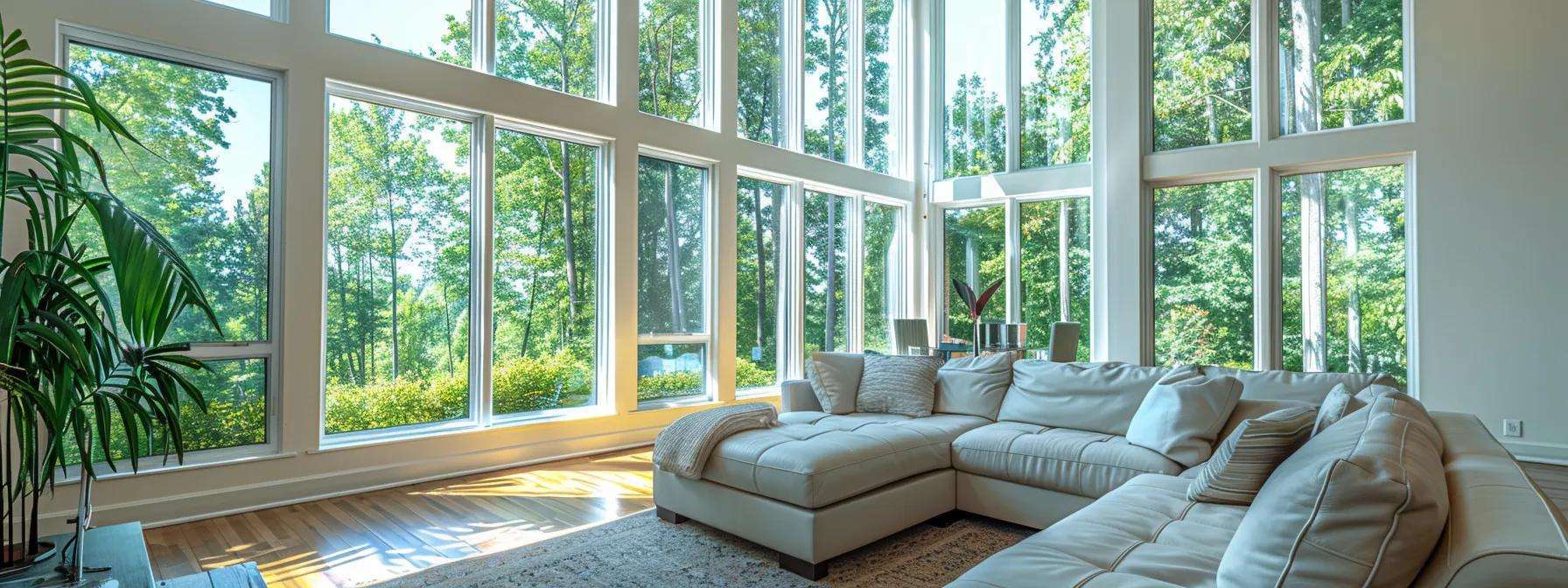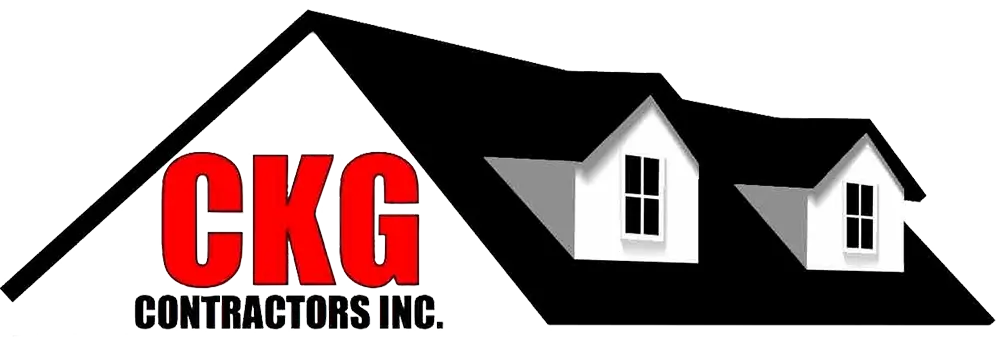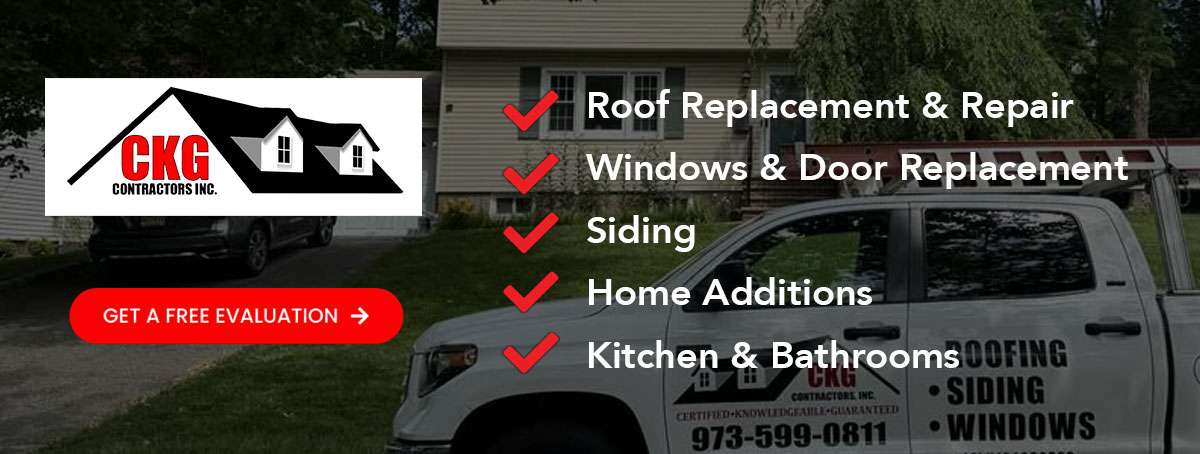
Table Of Contents:
- What Are the Key Seasonal Maintenance Tasks for Replacement Windows in NJ?
- How Does New Jersey’s Climate Affect Replacement Window Maintenance?
- What Are the Best Practices for Cleaning and Inspecting Replacement Windows Year-Round?
- How Can You Extend the Lifespan of Replacement Windows With Regular Maintenance?
- Which Energy-Efficient Window Features Should NJ Homeowners Maintain Year-Round?
- When Should You Consider Replacing Replacement Windows Instead of Maintaining Them?
- How Can Local NJ Window Replacement Services Support Year-Round Maintenance?
- Frequently Asked Questions
Maintaining replacement windows in New Jersey is essential for keeping energy bills low and preserving the long-term investment in your home. At CKG Contractors, Inc., we have seen how proper window maintenance not only improves energy efficiency but also extends window life against New Jersey’s variable weather. This article provides clear, actionable advice on seasonal maintenance tasks, the impact of local climate, cleaning practices, routine care to extend lifespan, energy-efficient feature upkeep, and when window replacement becomes necessary. Regular upkeep helps avoid costly repairs and unexpected replacement expenses while ensuring comfort and protecting your home’s structural health.
In New Jersey, windows face harsh winters, humid summers, damp springs, and mild falls. As seasons shift, the materials—whether vinyl, aluminum, fiberglass, or wood—can expand, contract, or degrade if not properly maintained. Replacement window maintenance involves seasonal preparation, inspection, cleaning, and professional service planning. Understanding the timing of these tasks leads to energy savings, prevention of weatherboarding issues, and enhanced water resistance during NJ rainstorms and winter snow.
Our approach at CKG Contractors is to convert technical steps into practical home improvement strategies for durability and improved performance. Homeowners in New Jersey can reduce utility bills while minimizing the risk of mold, moisture damage, or leaks by following these actionable insights that blend DIY repairs with professional advice.
What Are the Key Seasonal Maintenance Tasks for Replacement Windows in NJ?
Windows Replacement in New Jersey require a maintenance schedule that addresses each season’s challenges. In winter, focus on preparing windows for cold; in summer, protect them from extreme heat and humidity; and in spring and fall, perform transitional care to address changes in temperature and moisture.
Regular seasonal inspections are essential to detect early signs of wear. During winter, check for cracks, gaps, and shrinking seals that may lead to drafts and higher heating costs. Use weatherstripping and caulking to improve insulation. In summer, inspect window frames for warping and check seals while cleaning both interior and exterior surfaces to maintain low-E coatings. In spring and fall, look for signs of moisture damage and clean out debris from storm seasons, replace old caulk, and lubricate moving parts. This periodic attention not only prevents problems but also reduces the burden on heating and cooling systems.
How Does New Jersey’s Climate Affect Replacement Window Maintenance?

New Jersey’s climate presents a mix of extreme cold, high humidity, and heavy precipitation that stresses replacement windows. In winter, freezing temperatures cause frame contraction and expansion, often leading to gaps that allow cold air to seep in. In summer, strong UV rays and high humidity weaken caulking and seals while promoting mold growth. During spring and fall, frequent rain can lead to moisture infiltration if seals are compromised.
These environmental factors mean that even energy-efficient windows must be regularly inspected, cleaned, and resealed to maintain performance. Timely maintenance prevents increased energy consumption due to poor insulation and helps safeguard against weather-related damage. A proactive maintenance schedule addresses both immediate weather events and long-term material degradation.
What Are the Best Practices for Cleaning and Inspecting Replacement Windows Year-Round?
Year-round window maintenance combines effective cleaning with routine inspections. Always use a non-abrasive cleanser and microfiber cloths to clean glass without damaging low-E coatings. Regularly inspect seals, caulk, and weatherstripping for cracks or gaps that can lead to energy loss. Check frame corners, sashes, and internal tracks for signs of water seepage or damage. Document inspections with photos or notes so that trends can be monitored over time.
To ensure thorough upkeep, schedule quarterly cleanings and an annual professional inspection. Using environmentally friendly cleaning solutions not only preserves the window materials but can also help extend manufacturer’s warranty coverage. Maintaining a detailed cleaning and inspection routine ultimately leads to enhanced energy efficiency, prolonged window life, and an improved home environment.
How Can You Extend the Lifespan of Replacement Windows With Regular Maintenance?

Consistent, comprehensive maintenance is key to extending the lifespan of your replacement windows. Regular cleaning, timely repairs, and proactive inspections help prevent minor issues, such as deteriorating seals, small water leaks, or dirt buildup, from escalating into costly problems.
Develop a seasonal maintenance plan: create checklists for winter, summer, spring, and fall. In winter, focus on resealing and lubricating moving parts; in summer, perform frequent cleaning and check for sun damage; and during spring and fall, attend to transitional adjustments and debris removal. This plan should also include professional inspections at least once a year.
A well-maintained window system improves insulation, reduces strain on your HVAC system, and ultimately lowers energy bills. Keeping detailed records of inspections and minor repairs helps predict when further intervention may be necessary and supports warranty claims, protecting your investment over time.
What Are the Benefits of Scheduling Annual Professional Window Maintenance in NJ?
Scheduling annual professional maintenance offers several benefits. Experts have the specialized tools and expertise necessary to inspect every aspect of your window system—from glass integrity to seal condition. Early detection of hidden issues prevents extensive damage and reduces repair costs. Professionals can also apply advanced products that enhance energy efficiency and maintain a secure seal. Regular professional inspections help extend window lifespan, ensure warranty compliance, and ultimately lead to lower energy bills and higher home resale value.
How Do Maintenance Plans Help Protect Your Investment in Replacement Windows?
Maintenance plans serve as a safeguard for your window investment by scheduling regular visits for thorough cleaning, inspections, and minor repairs. These plans provide documented service histories that support warranty claims and help identify issues early, preventing costly emergency repairs. By ensuring windows are always in optimal condition, such plans reduce energy inefficiencies and preserve the overall market value of your home, offering peace of mind and long-term savings.
What DIY Maintenance Tips Can Homeowners Use Between Professional Visits?
While professional upkeep is important, there are several effective DIY practices to keep your windows in peak condition between service visits. Establish a regular cleaning routine using non-abrasive cleaners and microfiber cloths to remove dirt and dust from both sides of the windows, preserving low-E coatings. Inspect window sills, tracks, and seals monthly—especially during transitional seasons—for signs of moisture or wear. Use sealant repair kits for small issues and check moving parts like hinges and locks to ensure they operate smoothly.
During extreme weather, consider temporary measures such as insulating window film or reapplying silicone lubricant to moving parts. Keep a small toolkit with extra weatherstripping, caulk, and cleaning supplies. Finally, maintain a maintenance journal to document observations and DIY repairs, supporting both continuous care and professional inspections.
Which Energy-Efficient Window Features Should NJ Homeowners Maintain Year-Round?
Energy-efficient features such as low-E coatings, gas fills, weatherstripping, and caulking must be maintained to ensure maximum performance. Regular cleaning prevents dust buildup on low-E coatings, which are designed to reflect heat while allowing visible light to pass through. Similarly, the gas fills (argon or krypton) in multi-pane windows provide extra insulation but rely on intact seals for long-term performance.
Weatherstripping and caulking are the first lines of defense against air infiltration. Inspect these components quarterly to ensure they remain flexible, intact, and capable of forming a tight seal. Proper upkeep of these elements helps maintain energy efficiency, reduce heating and cooling costs, and boost home value by preserving manufacturer warranties.
For example, well-maintained low-E coatings and gas fills can reduce heat loss by up to 20%, while timely replacement of worn weatherstripping minimizes energy loss significantly.
How Do Low-E Coatings and Gas Fills Affect Window Maintenance Needs?
Low-E coatings, which reflect heat to maintain indoor temperatures, require regular cleaning with non-abrasive products to preserve their reflective properties. Gas fills between panes enhance thermal performance but depend on secure seals. Even minor leaks can reduce energy efficiency. Regular inspections ensure that any signs of reduced performance—such as unusual condensation or temperature fluctuations—are promptly addressed. This careful balance between cleaning and repair helps sustain the energy-saving benefits of both low-E coatings and gas fills.
What Role Do Weatherstripping and Caulking Play in Energy Savings?
Weatherstripping and caulking form the immediate barrier that prevents drafts and heat transfer. When properly maintained, these components keep conditioned air inside while blocking unwanted outside temperatures, lowering the workload on HVAC systems. Even small gaps from worn weatherstripping or degraded caulk can lead to significant energy losses. Regular inspection and replacement can reduce energy consumption by 15–20%, improve indoor comfort, and extend window life, making these simple maintenance tasks critical for energy savings.
When Should You Consider Replacing Replacement Windows Instead of Maintaining Them?

While regular maintenance can extend the life of your windows, there are times when replacement becomes the better option. Persistent drafts, frequent condensation between panes, significant frame deterioration, and an inability to hold insulation despite regular upkeep are all warning signs. If your windows have required multiple repairs in a short period, this suggests that the structure is compromised and replacement may be more cost-effective.
Changes in building standards and advancements in energy-efficient technology can also render older windows less effective compared to modern models. New replacement windows often feature advanced low-E coatings, better gas fills, and reinforced frames that significantly improve energy savings and indoor comfort. Consulting a professional can help determine whether repair costs outweigh replacement benefits, especially if outdated windows affect your home’s value.
What Are the Common Signs That Replacement Windows Are Beyond Repair?
Common indicators that windows are beyond repair include persistent drafts, significant condensation between panes, visible warping of frames, peeling paint, or rotting wood. When repairs become frequent and the windows struggle to function smoothly—such as difficulty opening or closing—these are clear signs that replacement may be more economical in the long run. Additionally, if windows no longer meet current insulation or energy code standards, replacement becomes a practical choice.
How Does NJ Building Code Influence Window Replacement Timing?
New Jersey’s building codes, which are periodically updated, set minimum standards for energy efficiency, air leakage, and durability. If your existing replacement windows no longer meet these updated codes, they may lead to higher energy bills and potential fines during property inspections or sales. Upgrading to modern, code-compliant windows ensures better insulation, improved safety, and often enhanced durability in extreme weather. Professional consultations can help determine if your windows need replacement to stay in line with current building codes.
What Are the Advantages of Upgrading to New Energy-Efficient Windows?
Upgrading to modern energy-efficient windows offers benefits beyond code compliance. New windows are constructed with advanced materials that improve insulation and durability, leading to lower heating and cooling bills. They often feature enhanced low-E coatings, superior gas fills, and robust frames that resist moisture and harsh weather conditions better than older models. Upgraded windows also enhance the visual appeal and market value of your home, reduce the workload on your HVAC system, and may operate more quietly—all of which contribute to a more comfortable and economically efficient home environment.
How Can Local NJ Window Replacement Services Support Year-Round Maintenance?
Local NJ window replacement and maintenance services are invaluable for ensuring that your windows perform at their best year-round. These companies understand New Jersey’s unique weather challenges and offer tailored maintenance packages that include routine cleaning, resealing, lubrication, and prompt repairs. They are equipped with advanced diagnostic tools such as thermal imaging to detect hidden issues and can quickly respond to extreme weather events.
By partnering with a reputable local provider like CKG Contractors, you benefit from expert inspections, emergency repair services, and local knowledge of building codes and regional conditions. This proactive approach helps maintain energy efficiency, extend the lifespan of your windows, and ultimately protect your home investment while reducing overall maintenance stress.
What Makes New Jersey Window Maintenance Services Unique?
New Jersey window maintenance services stand out due to their specialized knowledge of local climate conditions. Professionals here understand the impact of severe winters, humid summers, and transitional weather on window performance. They combine regional insights with advanced maintenance techniques and tools to deliver customized service plans that address local building codes, insurance requirements, and design trends. This localized expertise ensures that every window receives optimal care tailored to New Jersey’s demands.
How to Choose a Reliable NJ Window Replacement and Maintenance Company?
Choosing a reliable NJ window replacement and maintenance company involves comparing customer reviews, local experience, and certifications. Look for providers with a solid track record, clear pricing, comprehensive warranties, and a range of maintenance services including routine cleaning, seasonal inspections, and emergency repairs. Transparency in estimates and detailed service plans are key indicators of a trustworthy provider. Reliable companies also offer flexible maintenance programs and use quality materials like advanced sealants and low-E friendly cleaners. Ensuring that they have an effective emergency response further emphasizes their commitment to long-term care for your windows.
What Maintenance Packages Do NJ Companies Offer for Replacement Windows?
NJ companies typically offer a variety of maintenance packages to suit different needs and budgets. Basic packages may include quarterly inspections, cleaning, and minor resealing, while more comprehensive plans offer periodic deep-cleaning, thermal imaging inspections, and priority repair services. Some providers also offer customizable options where homeowners can tailor services based on the age and condition of their windows. These packages help prolong the life of your windows, maintain energy efficiency, support warranty compliance, and ultimately protect your investment through regular, documented maintenance.
Frequently Asked Questions
Q: How often should I have my replacement windows professionally inspected in New Jersey? A: It is recommended to have your replacement windows inspected at least once a year—ideally before extreme seasonal conditions begin. Quarterly inspections are beneficial for catching small issues early.
Q: Can DIY maintenance fully replace professional window maintenance services? A: While DIY maintenance can handle routine cleaning and minor repairs, professional services are essential for comprehensive inspections and resolving issues that require specialized equipment.
Q: What are the primary benefits of maintaining energy-efficient windows? A: Proper maintenance reduces energy loss, lowers utility bills, and enhances indoor comfort by preserving low-E coatings, gas fills, and weatherstripping.
Q: How can I tell if my windows need new caulking or weatherstripping? A: Look for visible cracks, peeling or shrinkage of sealant, persistent drafts, or inconsistent indoor temperatures near the windows. Regular inspections, especially after severe weather, can reveal these issues.
Q: Do maintenance packages from NJ window companies cover emergency repair services? A: Many local companies include emergency repair services, priority scheduling, and thorough inspections in their maintenance packages to promptly address urgent issues.
Q: What impact do weatherstripping and caulking have on my home’s energy consumption? A: These components form a key barrier preventing drafts. When maintained properly, they help keep conditioned air inside, significantly reducing heating and cooling costs.
Q: Are there long-term benefits to upgrading my windows even if they are currently maintained? A: Yes. Upgrading to modern, energy-efficient windows can offer improved insulation, enhanced durability, and long-term savings on energy bills while boosting home resale value and ensuring compliance with updated building codes.




